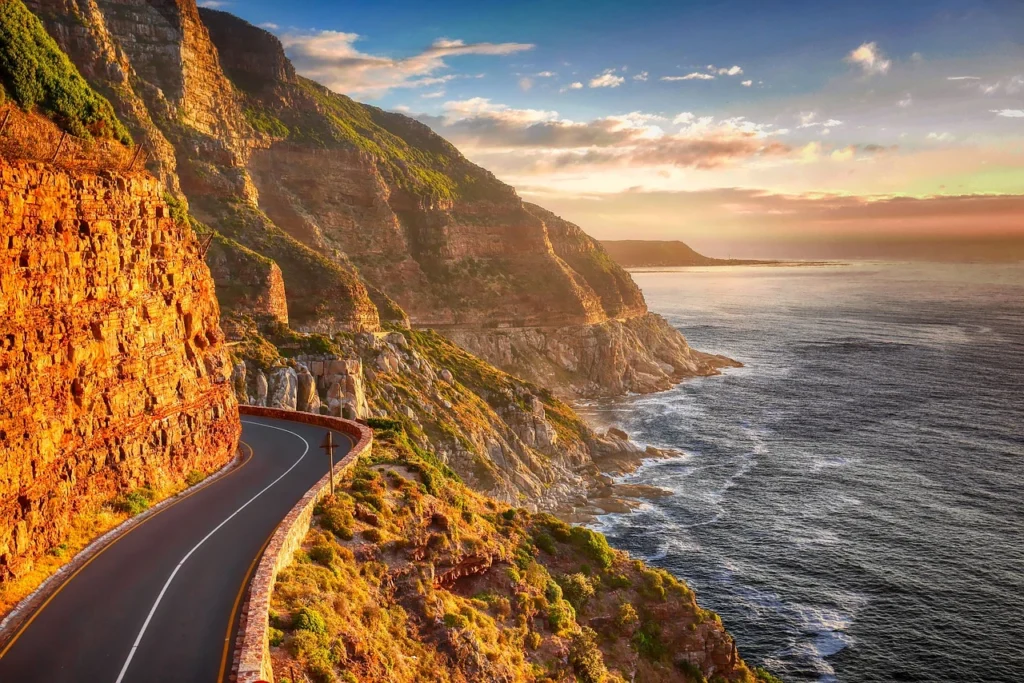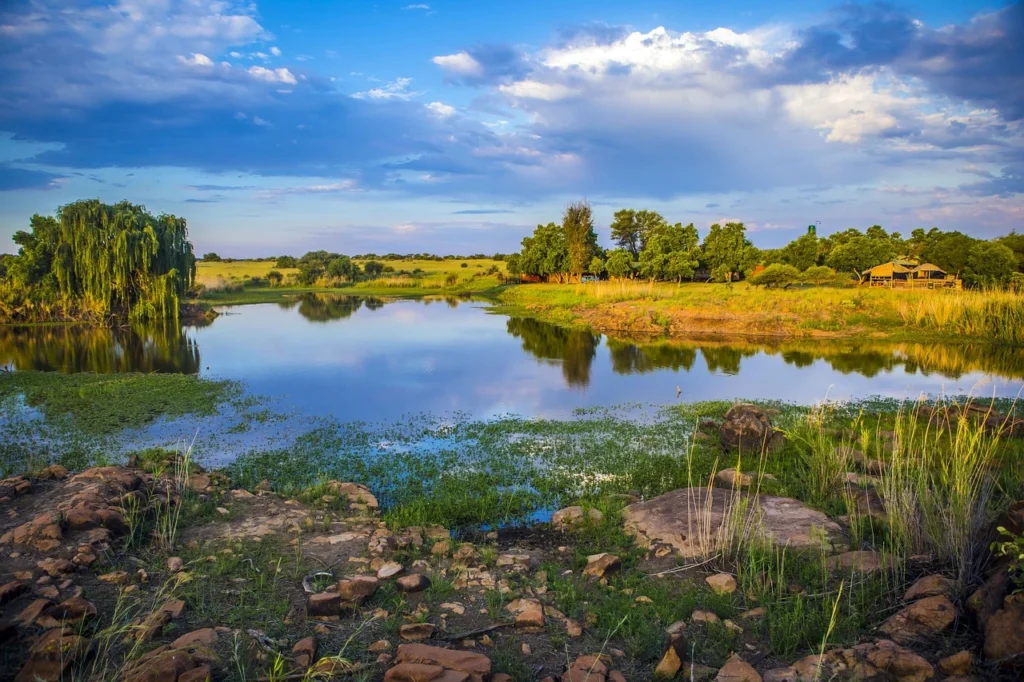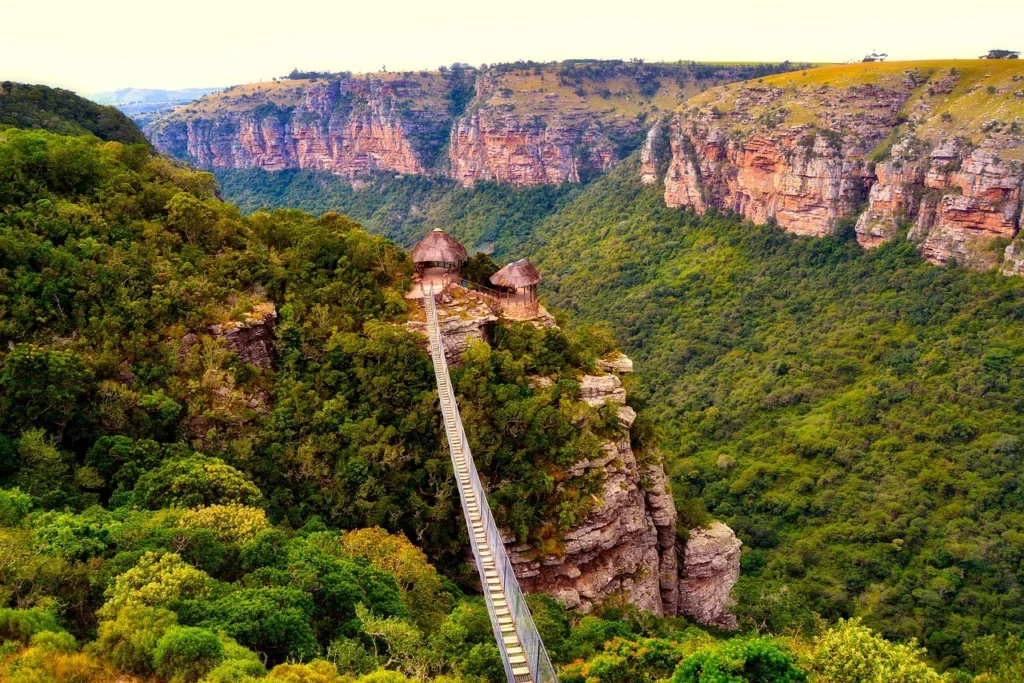Best Time to Visit South Africa: A Month-by-Month Guide
South Africa is a captivating destination, offering visitors an array of experiences across its diverse landscapes and cultures. From its scenic coastline and world-renowned wildlife reserves to vibrant cities and rich historical sites, South Africa is an adventure waiting to happen. Choosing the best time to visit South Africa depends on the type of experience you’re seeking, as the country’s climate and seasonal activities vary by region.
In this guide, we’ll cover the best times to explore South Africa’s top attractions, from Cape Town’s beaches and the famous Kruger National Park safaris to the stunning Garden Route and wine regions.
Why South Africa’s Seasons Matter

Understanding the seasonal variations in South Africa is essential, as each region offers unique experiences. South Africa’s seasons are opposite to those in the Northern Hemisphere, with summer from December to February and winter from June to August. The ideal time to visit depends on whether you’re planning for beach relaxation, wildlife safaris, cultural festivals, or other adventures.
Best Months to Visit for a Safari Experience
If your main goal is a wildlife safari, South Africa offers thrilling opportunities throughout the year. Kruger National Park and private reserves in the Mpumalanga and Limpopo provinces are the top destinations for safari experiences.
June to September: The Dry Season (Best for Safaris)
The dry winter months are the best time to visit South Africa for a safari. During this time, water sources become scarce, and animals are more likely to congregate around rivers and watering holes, making them easier to spot. Vegetation is thinner, improving visibility and enhancing the likelihood of seeing the Big Five (lion, elephant, buffalo, leopard, and rhino).
- Pros: Excellent wildlife viewing, lower humidity, and fewer mosquitoes.
- Cons: Cooler mornings and evenings, can be crowded due to peak season.
October to April: The Wet Season (Summer Safaris)
While summer brings lush landscapes and new-born animals, it also means more rain, thicker vegetation, and more dispersed wildlife. However, birdwatchers may find this season ideal, as migratory birds arrive in abundance.
- Pros: Beautiful green landscapes and fewer tourists.
- Cons: Higher temperatures, increased rain, and challenging wildlife visibility.
Best Time to Visit Cape Town
Cape Town, famous for its Table Mountain, beaches, and vibrant city life, has a Mediterranean climate, with warm, dry summers and mild, wet winters.
December to March: The Best Time for Beaches and Sightseeing
Summer in Cape Town is ideal for beach activities, outdoor events, and exploring nearby attractions like the Cape Winelands. This season also offers excellent conditions for hiking Table Mountain and enjoying outdoor festivals.

- Pros: Warm, dry weather, long days, and vibrant city life.
- Cons: Higher prices, crowded beaches, and longer queues at attractions.
April to May: Pleasant Shoulder Season
Early autumn brings cooler temperatures and fewer crowds. It’s an excellent time to explore Cape Town’s scenic routes, wine regions, and iconic landscapes without peak-season crowds.
- Pros: Milder weather, fewer tourists, and beautiful autumn scenery.
- Cons: Occasional rain and shorter days.
June to August: Winter Season
Although Cape Town experiences rain during winter, this is the best season for whale watching along the Western Cape coast. The city also sees fewer tourists, which means better rates on accommodations.
- Pros: Ideal for whale watching, lower accommodation rates.
- Cons: Rainy weather and colder temperatures.
Wine Country: Stellenbosch and the Winelands
South Africa’s Winelands, particularly Stellenbosch, Franschhoek, and Paarl, offer world-class wine tasting and stunning vineyard landscapes.
March to May: Harvest Season
Autumn is the best time to visit the Winelands, as the grape harvest is in full swing. Many vineyards offer wine tastings and harvest festivals, allowing visitors to experience the excitement of the season.
- Pros: Festive atmosphere, beautiful vineyard scenery.
- Cons: Higher demand for accommodations.
September to November: Spring Bloom in the Winelands
Spring brings mild weather and blooming wildflowers. It’s a fantastic time to enjoy wine tours and outdoor activities without the summer crowds.
- Pros: Pleasant temperatures, stunning flower displays.
- Cons: Less activity compared to the harvest season.
Exploring the Garden Route
The Garden Route, a scenic coastal drive along the southern coast, is famous for its diverse landscapes, adventure activities, and charming towns like Knysna and Plettenberg Bay.

October to April: Best Weather and Outdoor Activities
The warmer months are ideal for exploring the Garden Route’s beaches, forests, and national parks. Adventure seekers can enjoy activities like kayaking, hiking, and zip-lining.
- Pros: Ideal beach weather, perfect for outdoor adventures.
- Cons: Higher accommodation prices during the peak season.
May to September: A Quieter Experience
While temperatures are cooler, this is a good time to visit for those seeking a more relaxed, crowd-free experience. Some migratory whales can be spotted along the coast during this period.
- Pros: Fewer tourists and discounted accommodations.
- Cons: Cooler temperatures, some attractions may have shorter hours.
Northern Cape and the Kalahari Desert
For a truly unique experience, consider visiting the Northern Cape, including the Kalahari Desert and Namaqualand.
August to September: The Flower Season in Namaqualand
Each year, the semi-arid region of Namaqualand transforms into a colorful carpet of wildflowers. This natural spectacle draws visitors worldwide and is a must-see for nature lovers.
- Pros: Stunning wildflower blooms, perfect for photography.
- Cons: Limited accommodation availability due to popularity.
May to September: Cooler Months in the Kalahari
Winter is the best time to explore the Kgalagadi Transfrontier Park, where wildlife is abundant, and temperatures are manageable.
- Pros: Excellent wildlife sightings and pleasant temperatures.
- Cons: Remote location, requiring longer travel.
Durban and the East Coast
Durban, known for its beaches, warm Indian Ocean waters, and rich cultural heritage, experiences mild winter and warm summer temperatures.
May to September: Pleasant and Dry Winter
Winter is the best time for Durban, as it offers mild temperatures, low rainfall, and ideal beach conditions. The city’s annual sardine run also occurs during this season, attracting marine wildlife and creating a unique experience.

- Pros: Ideal beach conditions, sardine run.
- Cons: Slightly cooler water temperatures compared to summer.
October to April: Hot and Humid Summer
The summer months bring higher humidity and rainfall but are still popular with beachgoers.
- Pros: Warm ocean waters and vibrant city atmosphere.
- Cons: Increased rain and humidity.
The Drakensberg Mountains
For travelers interested in hiking, the Drakensberg Mountains offer stunning peaks, scenic trails, and ancient rock art sites.
April to May and September to November: Best Hiking Weather
During these months, the Drakensberg experiences mild temperatures and clear skies, making it ideal for hiking, rock climbing, and exploring caves.
- Pros: Comfortable hiking weather and fewer crowds.
- Cons: Less greenery compared to the rainy season.
June to August: Snowy Peaks for Winter Lovers
For a unique experience, winter can bring snow to the higher elevations, creating a beautiful contrast against South Africa’s typically warm climate.
- Pros: Unique snowy landscapes.
- Cons: Colder temperatures and limited accessibility to some trails.
Conclusion: Finding Your Ideal Time to Visit South Africa
With so many regions, activities, and seasonal experiences, South Africa is a year-round destination where there’s always something remarkable to discover. Whether you’re exploring Cape Town’s beaches, embarking on a thrilling safari, or venturing into the scenic Winelands, understanding the seasonal changes can help you make the most of your trip.
Choosing the best time to visit South Africa ultimately depends on your interests. For wildlife enthusiasts, the dry season between June and September offers the most rewarding safari experience. Beach lovers and city explorers should consider the summer months, while spring and autumn provide excellent conditions for wine tasting, festivals, and scenic drives. With careful planning, you’re guaranteed an unforgettable journey through South Africa’s diverse landscapes and rich cultural tapestry.
